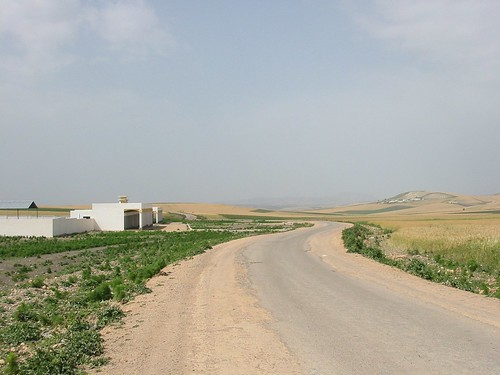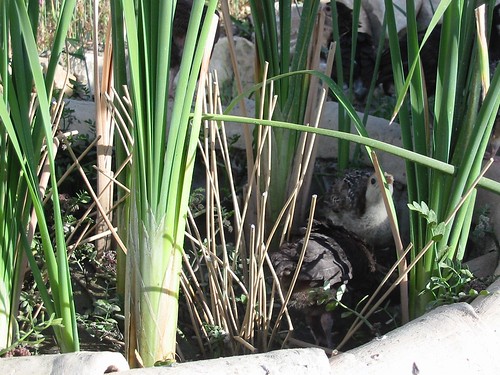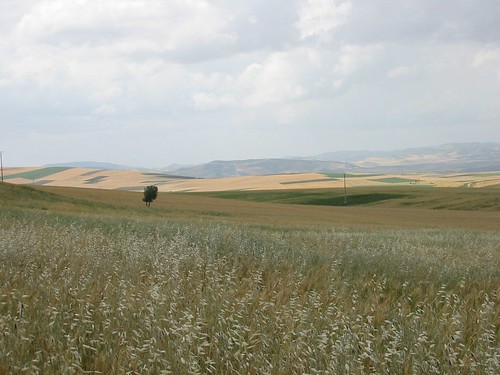Why were we deprived of our car? Oh, yes, right, the Customs. It’s been a real problem for us since we moved in Morocco. I’ll spare you the details, as it is very complicated. The bottom line is, we had to leave our car home, and were not authorized to use it. Well, by an amazing stroke of luck the problem was fixed on last Tuesday – a miracle really, since Fred left the day after to play in a festival in Poland, and that he couldn’t have left Morocco if the situation hadn’t been resolved. So now we can keep our car until July
Living in Ouled Mgatel without a car can seem difficult. And it was a little. For us. Because here nobody’s got a car. And when people have money, they usually buy tractors, not cars.
People here don’t travel that much. Every week, they go to the market to sell their crop or to buy food. They also have to get their electricity cards in a nearby town – yes, it’s the way it works here: it works with electricity like it does with cell phones. I guess the electric company doesn’t trust the people to pay their bills – and they’re probably right. Every once in a while, people visit family in Fez, or go see the doctor. But that’s all. Young men without a wife travel more often that the others; women rarely leaves their village, and young girls never do. The daughter of our neighbor, Houria, 14, has never even seen the road – she only knows Ouled Mgatel and Ouled Tahar, which is 1 kilometer away, and the dirt road between the 2 villages.
For three weeks we weren’t allowed to use our car, but we didn’t actually leave it at home all the time. The dirt roads here aren’t exactly considered as police territory – for many reasons, hum, I’ll explain why another time. So we drove to the main road, to Lotar Hmouchi (the Mouchi plain), where we hitchhiked.

As you can see, there are no trees. It makes for really hot wait for a cab, believe me !
I thought it would be very unpleasant, but, apart from the fact that we had to travel light and that we couldn’t bring as many things we wanted from Fez, it was not. We rarely waited for more than 10 minutes before somebody stopped. There are a lot of taxis on this road. Some of them are clandestine taxis, and it can be an adventure to take one of them - like 4 people in the front seat (3 is the norm for taxis). Sometimes, people just stop and give you a lift, like this local politician with a big car that drove us to Fez last week.

Feels better like this !












